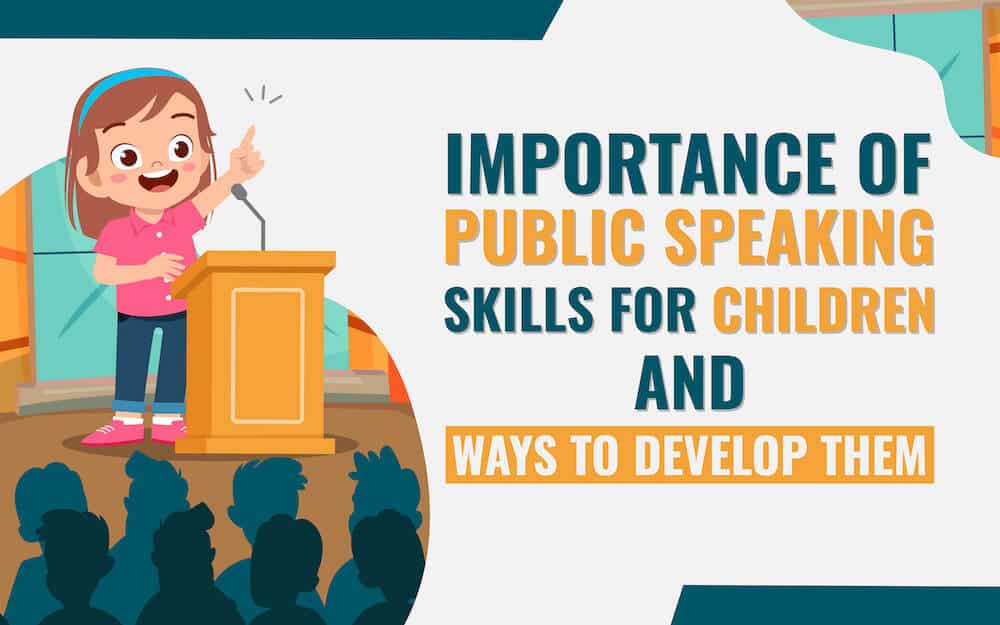
Finding the right topic for your speech is sometimes more tricky than preparing the content. When you have the speech topic laid out for you, no worries. But, when you need to dive into the ocean of information and retrieve your perfect pearl, that’s a little bit of work.
Fret not! We are here to help you figure out the technique of finding the best speech topics.
Before that, let’s elaborate on some speech topic scenarios and see if you can choose the right setting.
- You are considering the prison system as your topic. You don’t really know how it works, but the concept seems interesting. Your audience feels the same.
- The speech topic is planning a vacation to Goa. You have visited the place a few times and know your audience would be interested in learning about it. However, you despise the place since you are a mountain person and dread going near water or discussing it.
- The topic is ways to deal with depression. You recently went through a bad spell and know how it harms you. After recovering, it became your deepest desire to help people come out of it. Several colleagues are going through a similar condition because of bad economic conditions.
- You plan to talk about electric cars. You own one and are really enjoying the experience. The audience primarily consists of people who can’t afford expensive vehicles and aren’t going to shift toward this trend in the near future.
- The topic is makeup. You don’t use it, and neither do you like it. However, your audience is very much interested, young girls primarily.
- The topic is the software development process. You have all the knowledge but no interest. Your audience doesn’t care, either.
- The speech topic is black holes. You have no knowledge but are fascinated by it. Your audience doesn’t care about it much, though.
- The topic is the training module. You don’t know much about it. You don’t care as well, and so is the case with your audience.
Which case seems like a close fit for the speech topic?
Most of us will go ahead with 3 because it ticks all our boxes. This article is designed to step by step walk you through the measures you need to take to zero in on the perfect topic for you. Let’s figure out the boxes we mentioned above.
The 3 Secret Questions
Whenever you want to choose a topic, focus on the following questions.
1. What do I know?
No need to be an expert, but what are the topics I have experience and knowledge about? It could be anything like black Hole, foster care, Kanye West, racing cars, etc.
2. What do I really care about?
The category covers things you are passionate about. It will include topics that excite you and matter to you, for example, spirituality, environment sustainability, equality, etc.
3. What do people care about?
What interests and matters to people right now? How will the topic you choose enrich or benefit their lives and understanding? Does it affect them, and would they be interested in finding out?
It doesn’t mean you need a detailed understanding of people’s interests and knowledge levels. If you can tailor the topic according to people’s needs and requirements, you surely have a successful speech topic in hand.
In this context, Andrew Dlugan, a renowned public speaking coach and an award-winning speaker, created a Venn diagram.
I call this diagram the eight zones. Some of these zones are a complete no-no, some are workable, and one of them is a golden egg – the best speech topic for you. Let’s figure out which one it is and how you can work around others.
The 8 Speech Zones
ZONE 1 – Your Perfect Speech Topic
Pros – You have expertise on the topic and are passionate about it. Your audience shares interest with you. A smart speaker capitalizes on this zone by drawing speech topics from here.
You will be confident as you know enough about the topic. You have a deep interest in sharing the knowledge that reflects in your content, body language, voice modulation, energy levels, etc.
The audience will be more open and receptive as the topic will be of interest to them. In short, that’s a concoction of an impactful and engaging presentation.
Cons – None
This is your golden egg, the perfect combination for you!
Example – point no. 3 in the topic scenarios above.
What if you don’t have topics that fall into this category? Does it mean you can’t succeed in other zones? Well, not in every case. Read on to find out what the other categories are and how we can move them to Zone 1.
ZONE 2 – Great Content But No Passion
Pros – You have solid expertise, and the audience wants to know.
Cons – The topic doesn’t excite you, though. Consequently, the disinterest can be reflected in dull body language and monotonous tone. In a nutshell, the speech can be a snore-fest.
Can you make it a zone 1 topic?
You can rekindle your passion again. After all, there was something in this topic that got you on the journey of becoming an expert in the first place.
If you can’t find it yourself, you can speak to potential audience members and enquire what interests them about this topic. The audience is super interested in knowing and by reigniting your passion, you can open the door for many people.
Example – point no. 2 in the topic scenarios above.
ZONE 3 – Great Topics But Not For This Audience
Pros – You love the topic and would love to share your knowledge with anyone who is interested.
Cons – Unfortunately, people don’t share your passion.
Can you make it a zone 1 topic?
You can undertake two actions in this situation.
- The target is to find topics that are of value and interest to people. Try to find ways of linking this topic with things people care about by drawing parallels, storytelling, diagrams, metaphors, etc. Find a common ground between the topic and the subject people care about to help them engage and take interest.
- Keep this topic on the side for a different set of audiences. There are people who share the same passion as you and would want to take a peek into your expertise. You just need to look for the right set.
Example – point no. 4 in the topic scenarios above.
ZONE 4 – You Know Nothing About It
Pros – You love the topic, and so does your audience.
Cons – Unfortunately, you don’t have the required knowledge and expertise to impart any wisdom. It could be so that people know as much or maybe more than you on this subject matter.
Can you make it a zone 1 topic?
It is one of the most interesting and fertile zones to be in, and a couple of approaches can help you succeed in your speech.
- You can work on building up your knowledge and skill set over time (if you have a little bit of time before presenting).
The category is a great opportunity and motivation for you to develop your expertise as you are passionate about the subject matter, and the audience is super interested. The speech topics could work very well for TED talks.
- You can admit the limits of your expertise and ditch the traditional speech format. Instead, you can facilitate the discussions ahead between you and the people.
Open with a short speech, which paves the way for conversation points. You can lead the discussion and help people explore new ideas, issues, and solutions.
Example – point no. 1 in the topic scenarios above.
ZONE 5 – Topics for Someone Else
Pros – The audience cares about these topics.
Cons – Neither your heart nor your intellect finds solace in these topics.
Can you make it a zone 1 topic?
Well, it’s a very long shot. You will need to develop expertise and a knowledge base, but that’s very difficult to achieve without any liking and interest in the topic. With minimal knowledge, cultivating passion is a little difficult.
You might reach your destination with consistent efforts, but it would be wise to look for other topics and leave this for someone else.
We recommend you not to bluff your way through this category of topics as people will sense your lack of knowledge and interest. And it might shatter your credibility.
Example – point no. 5 in the topic scenarios above.
ZONE 6 – Neither You Nor Your Audience Likes It
Pros – Hello, Mr. Expert! Well, yes, you know a lot about it.
Cons – But the sad part is you don’t care about it, like your audience.
Can you make it a zone 1 topic?
It is workable but very difficult. You have to find meaning for both you and your audience. If you can find one, it will help you find the other, but that will require too much energy.
As advised for zone 5 topics, you will be better off finding ideas from other categories.
Example – point no. 6 in the topic scenarios above.
ZONE 7 – These Might be the Hobbies
Pros – You are super fascinated with the speech topic.
Cons – Alas! You don’t know much about it, and the audience doesn’t share your interest either.
Can you make it a zone 1 topic?
Compared to zones 5 and 6, zone 7 is the better place to be in. Passion for the topic becomes a fuel to add knowledge about it. It will also motivate you to find ways and reasons to make people care.
Zone 7 can give you a few useful topics for your speech.
Example – point no. 7 in the topic scenarios above.
ZONE 8 – And We Have a Blank Wall Ahead
Pros – Eight looks like infinity! Well, we have no pros.
Cons – You and your audience are apathetic about it. Also, on top of it, you don’t have any expertise on the topic either.
Can you make it a zone 1 topic?
Simply put, you shouldn’t waste your time. This is a complete no-no zone for any speech topics.
Example – point no. 8 in the topic scenarios above.
You have the zones in place and the speech topics you could place into the categories. Now that you have gone through all of them, let’s figure out the methods you can use to search for topics.
Methods to Choose a Topic
1. The Personal Inventory and Experiences
Set a timer for about 3 minutes and quickly list topics under the label – things I know about and things I care about. There are no bad topics right now, so write whatever comes to your mind.
You can further divide the labels into people, places, things, processes, and events. Try to write 10- 20 topics under each label and find out similarities.
2. Guided Brainstorming and Mind-Mapping
You can use certain prompts to help generate ideas –
- “The world would be better if..”
- “I feel happy when..”
- “It jilts me that ..”
These prompts will help you generate ideas that you care about and have an idea of. Not everything will stick, but you might get a few promising ideas.
3. Research on the Internet
A simple research of informative/relevant speech topics or best public speaking topics will yield a list of probable ideas you can take help from.
You can also go through headlines of news and media channels to see the current events (particular developments and trends) and topics that might be of interest to you and people.
4. Community Support
Be a part of communities and clubs where you can discuss creative ideas and speech points. Group discussions and debates can help rekindle your creative thinking and expose you to diversifying viewpoints and perspectives.
Engage with people there in thoughtful conversations. It will benefit you with fresh ideas, new angles, and changed assumptions, and might even give you attractive speech topics.
Factors to Keep In Mind When Choosing the Topic
1. Your Interest/Passion
Going for a topic that genuinely excites you and that you know about – will reflect in your speech, catching people’s attention and engaging them.
2. Audience Analysis
Learn about the people you will be delivering to – their interests, knowledge level, understanding, concerns, demographics (age, gender, culture), etc. It will help you choose a topic and content that’s relatable and relevant to them.
3. Scope, Relevance, Timeliness, and Depth of the Topic
Your topic should have enough content to deliver a successful speech. It shouldn’t be too broad as a subject or too narrow that getting content becomes an issue. Also, it should be relevant and timely.
Anything that addresses some pressing concern or gives fresh insight into something important is bound to generate a lot of interest.
4. Available Research
You need to see if you have adequate research material and resources available for the chosen topic. The purpose is to add credibility to your content. Check if there are academic materials, experts, and online resources available to give you accurate information.
Also, you should assess the feasibility of accessing all that information within the timeframe.
To Sum It Up
Brainstorm ideas or search through the internet (lists of topics). Categorize them into the zones given above. You will be able to sift through the ideas and find your relevant Zone 1 speech topics.
If not, you can categorize them further and find ways to move them into Zone 1, as explained above. Going through the exercise shared above, you will be able to get your hands on the most relevant topic that will, for sure, translate into a successful speech for you and your audience.



